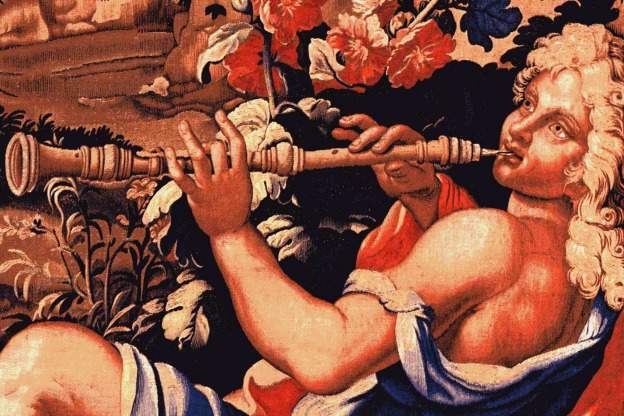
There's an anecdote about Handel that while reminiscing on his youthful compositions, he once remarked, "I wrote like the devil in those days, and chiefly for the oboe, which was my favorite instrument."
Who knows if Handel ever really said that or if it's just a good story that gives oboists bragging rights!
Whether or not Handel had a favorite instrument he showed his affinity for the oboe in the many good pieces he composed for it, including concertos, sonatas, and obbligato parts in many of his operas and vocal works.
The Batzdorfer Hofkapelle and oboist Xenia Löffler sample multiple genres of Handel's oboe works on a 2015 Accent release.
Concerto
The recording opens with Handel's Oboe Concerto in G minor. The Handel catalogue of works actually lists three oboe concertos in all, but some hold the authorship of the other two to be somewhat suspect. Handel's G minor oboe concerto is probably one of his earlier works, composed while in Hamburg before he left for Italy and England.
Even if you don't know this concerto, there's a good chance it will sound familiar because Handel reused bits and pieces from the oboe concerto in several other pieces, including a trio sonata, and concerto grosso and an organ concerto.
There's another concerto on this CD-a double concerto for oboe and bassoon. The recording lists the work as HWV "deest,"meaning the piece is not actually in the Handel catalogue of works.
Could this oboe bassoon concerto be by Handel? Maybe…but probably not.It was more likely composed by the Dresden composer Reichenauer.
In terms of Handel's oboe music, this piece is neither here nor there but nevertheless is worth mentioning, as it's been recorded here for the first time by the Batzdorfer Hofkapelle.
Chamber Music
This recording also delves into Handel's chamber music repertory with the c minor oboe sonata and Handel's B flat Trio Sonata, op. 2, no. 3. The trio sonata was probably composed in 1717 or 1718 because Dresden court oboist (and later Frederick the Great's flute teacher) Johann Joachim Quantz copied this sonata during Handel's visit to Dresden in 1719.
Vocal Music
It is in Handel's vocal music where we often hear the oboe front and center. Soprano Marie Friederike Schöder joins the ensemble for several oboe obbligato arias from Almira and Teseo, as well as the lovely Qui l'augel da pianta in pianta from Handel's 1708 cantata Aci, Galatea e Polifemo, in which the oboe and violin join with the soprano depicting a bird's flight of fancy.









